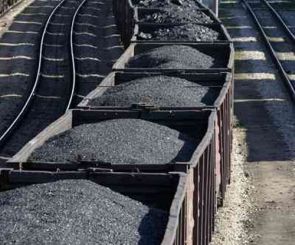Minister says current government has done in 4 months what the previous one couldn’t in 10 years
 The first round of coal block e-auction that ended on Sunday saw some of the key names in the industry bagging 18 mines with a combined extractable reserve of 90 million tonnes, along with attached end-use infrastructure.
The first round of coal block e-auction that ended on Sunday saw some of the key names in the industry bagging 18 mines with a combined extractable reserve of 90 million tonnes, along with attached end-use infrastructure.
According to the auction amount and royalty payable, six mineral-rich states are likely to earn a little more than Rs 1 lakh crore (Rs 1 trillion) over the next 30 years.
That’s not all.
Non-mineral-rich states will benefit from tariff concessions, or reduction in power rates arising out of stiff bidding for coal.
By the coal ministry’s rough estimates, for every decline of Rs 100 a tonne in a bid, the power rate gets reduced by 6 paise a unit.
The auction saw companies making even Rs 0 bids; that implies the bidding company concerned is ready to take the fuel cost on its account books and pass on the rate reduction to power consumers.
Budget 2015: Complete Coverage
Piyush Goyal, minister of state for coal, power and renewable energy, told Business Standard: “This (round of) auction has demonstrated that the corruption evident after 2004, when the then prime minister announced there would be auction of coal mines, has been stopped by the sincere efforts of the current Narendra Modi-led government.
This also shows that an honest and sincere government can allot natural resources through transparent e-auctioning.
This will not only earn revenue for states but reduce the fuel cost for power plants running on coal (from the auctioned blocks).”
Some of the earlier owners of coal mines -- Hindalco, Balco, Jindal Steel & Power, GMR and CESC -- bagged most of the blocks.
Of them, JSPL won back one of the blocks that it had lost after a Supreme Court order cancelled allotments.
Of the 18 operational blocks that went under the hammer, seven were kept aside for the power sector and the rest for unregulated sectors like iron, steel and cement.
While there was reverse bidding for power sector end-use, it was forward bidding for the unregulated sectors.
“You need to juxtapose this auction with what we tried last year with three cancelled coal blocks. No bid came.
“This auction methodology proves that transparency in the government’s functionality brings out the best results,” said Vivek Bhardwaj, joint secretary in the coal ministry and a member of the nominated authority for re-allocation of coal blocks.
The nominated authority comprises two officers and a clerk.
The budget of Rs 5 crore (Rs 50 million) was disbursed last week, in the last leg of the auction.
The others involved in the process with MSTC, the e-auction portal for coal block re-allocation; and SBI Caps, which evaluated the bids as the transaction advisor.
“We were ably assisted by a young team from Coal India. But the guiding force was the minister.
“He should get the credit for bringing innovative ideas and offering us a perspective on what the industry expected from the government,” said Bhardwaj.
Congratulating the team, Goyal said the current government had done in four months what the previous one could not in 10 years.
“We pulled off the auction in four months -- from October 20, when the re-allocation process started, to February 14, when the (first round of) e-auction began.
“This shows the sincerity of purpose and determination of this government. This also re-affirms the faith of people that India can be a great place to do business.”
Anil Swarup, former chief of the ‘Project Monitoring Group’, had joined the coal ministry as a secretary soon after the Supreme Court ordered cancellation of 204 block allocations made over the past two decades, calling those ‘illegal’ and ‘unconstitutional. He steered the re-allocation campaign and also kept the media and people informed about the bidding proceedings on his official Twitter handle.
“It was a conscious decision to make the auction process as transparent as possible.
“We kept the stakeholders informed in advance and held active discussions,” said Swarup.
The e-auction portal, mstcecommerce.com, built and operated by state-owned MSTC, was selected on a nomination basis.
The in-house technology team kept the bidding going 24x7 for 10 days without any technical glitch.
The website had all the updates on auction, including tender documents and mine-related information open for public view.
“This is just another auction for MSTC as a company.
“But for the country it has paved the way for real price discovery for natural resources, through a transparent e-auction system and market economics,” said MSTC chairman & managing director S K Tripathi.
MSTC (formerly known as Metal Scrap Trade Corporation Ltd), a mini-ratna public-sector undertaking, conducts e-commerce for several industrial products and raw materials.
“For us, this is just the beginning. This first phase of the auction has set the tone for allocation and discovery of value of natural resources,” said Swarup.
The office of the nominated authority, working on Sunday, was happy with the fact that the process was completed four days before schedule.
“The very first day we saw that Talabira-I coal block received Rs 0 bid; we knew this auction would be a historic one in more ways than one.
“There were court cases filed against us but the tireless back-end operations ensured success for the e-auction,” said Bhardwaj.
Starting February 25, the second phase of the auction will begin on the same portal, on almost the same format, for 19 non-operational coal blocks.
Already, 131 technical bids have been received from industry majors for these blocks.












 © 2025
© 2025